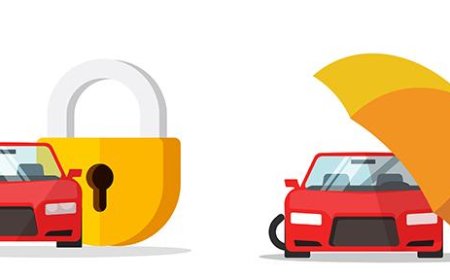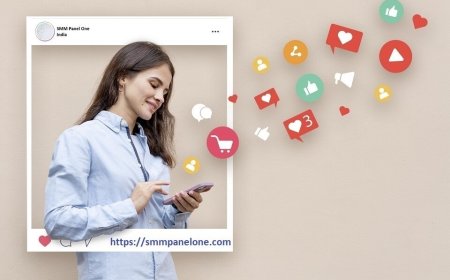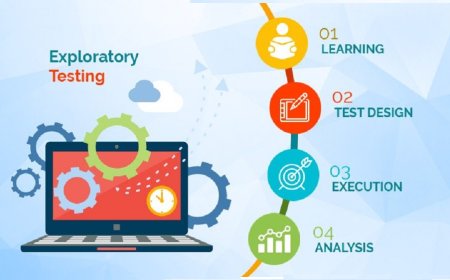B2B vs B2C Content Marketing Services: What's the Difference?
Explore how B2B and B2C content marketing services differ in tone, content formats, platforms, and performance metrics—and why strategy matters.

Not all content is created equaland neither are all content marketing strategies. Whether youre selling enterprise software or lifestyle products, content marketing services are essential to educating audiences, building trust, and driving conversions. But while the goalgrowthremains the same, the approach changes significantly between B2B and B2C.
From tone of voice and content formats to distribution channels and KPIs, understanding these differences is key to choosing the right content marketing services for your business.
In this blog, well break down exactly how B2B and B2C content strategies differand how professional content marketing services adapt to each model.
1. Audience Mindset and Buying Journey
B2B: Logic-Driven, Multi-Touch
In B2B (business-to-business), your audience includes decision-makers, stakeholders, and teams. These buyers are:
-
Solution-focused
-
Risk-averse
-
Interested in long-term value and ROI
The buying journey is longer, often involving multiple stages like research, comparison, internal approval, and demos. Thats why B2B content marketing services prioritize education, credibility, and relationship-building over hard sells.
B2C: Emotion-Driven, Instant Gratification
In contrast, B2C (business-to-consumer) buyers make decisions more independently. They value:
-
Emotional appeal
-
Convenience
-
Immediate satisfaction
The sales cycle is much shorter, often driven by trends, impulse, or discounts. Content must be snappy, engaging, and persuasivewith less focus on technical depth and more on brand voice and visual appeal.
2. Tone and Messaging
B2B Tone: Professional, Informed, Consultative
B2B content leans toward an authoritative but approachable tone. The goal is to position your brand as an industry expert that solves complex problems. Messaging is often supported by:
-
Statistics
-
Case studies
-
Whitepapers
-
Industry jargon (used sparingly)
B2B content marketing services often work closely with sales teams to align messaging with real objections and buyer pain points.
B2C Tone: Relatable, Entertaining, Emotional
B2C tone is all about connecting with the consumer personally. Brands may use humor, storytelling, or cultural references to create brand affinity.
Examples include:
-
Catchy taglines
-
Personal stories
-
Trend-driven content (like TikTok or Instagram Reels)
Here, content marketing services prioritize brand personality and emotional engagement to drive loyalty and impulse actions.
3. Content Formats
Common B2B Content Formats:
-
Case Studies: Real-world proof of product effectiveness
-
Whitepapers & eBooks: In-depth educational material
-
Webinars: Interactive sessions with thought leaders
-
LinkedIn Posts: Industry-specific insights
-
Email Nurture Sequences: Lead warming through value-driven content
-
SEO Blogs: Targeting decision-makers searching for specific solutions
These formats are longer, more data-heavy, and often gated behind lead capture forms to support lead generation.
Common B2C Content Formats:
-
Short-form Blogs: Tips, lifestyle guides, and listicles
-
Social Media Posts: Visual and shareable content on Instagram, TikTok, X
-
Product Videos: Quick explainer or testimonial clips
-
User-Generated Content: Customer reviews, unboxings, challenges
-
Email Newsletters: Promotions, launches, or lifestyle content
B2C content marketing services focus on volume, virality, and brand exposure through quick, high-impact assets.
4. Distribution Platforms
B2B Content Channels:
-
LinkedIn (primary platform for thought leadership and lead gen)
-
Email (newsletters, sequences)
-
Webinars and industry events
-
SEO-driven blog content
-
YouTube (for educational content like tutorials or expert panels)
B2B content is distributed on platforms that support deep engagement, trust-building, and peer credibility.
B2C Content Channels:
-
Instagram & TikTok (visual-first, brand awareness)
-
Facebook & Pinterest (community-based or product discovery)
-
Influencer Collaborations
-
YouTube Shorts & Reels
-
SMS and promotional email blasts
B2C services use channels that amplify reach and trigger quick consumer action.
5. Success Metrics and KPIs
B2B KPIs:
-
Marketing Qualified Leads (MQLs)
-
Demo Requests or Trial Signups
-
Time on Page (engagement)
-
Download Rates (for gated content)
-
Sales Cycle Shortening
-
Customer Lifetime Value (CLV)
Because of the complex funnel, B2B content marketing services measure success across multiple stages, from awareness to conversion.
B2C KPIs:
-
Traffic and engagement rates
-
Conversions and average order value (AOV)
-
Click-through and bounce rates
-
Customer reviews and social shares
-
Repeat purchases and cart abandonment rates
Here, the focus is on immediate impact, emotional resonance, and purchase behavior.
6. Budget Allocation and Campaign Longevity
B2B:
-
Higher investment per asset (whitepapers, reports)
-
Slower ramp-up but more long-term impact
-
Often tied to ABM (Account-Based Marketing) or lead gen campaigns
B2C:
-
Lower cost per content piece
-
Higher frequency and speed-to-market
-
Campaigns rotate quickly to match seasonal trends or viral moments
Content marketing services in B2B are often consultative and strategy-heavy, while B2C services are execution-focused and volume-driven.
Conclusion: Matching Content Marketing Services to Your Business Model
Understanding the difference between B2B and B2C content isnt just academicits strategic. When you hire content marketing services, you need a partner who adapts their tone, content, and distribution plan to your business model and audience expectations.
-
Selling to businesses? Choose a partner who knows how to build authority, nurture leads, and support the sales team.
-
Selling to consumers? Choose a service that can deliver emotionally-driven, visually compelling content fast.
Whether youre B2B, B2C, or a hybrid, the right content marketing strategy starts with clarity about your audienceand consistency in execution.



























